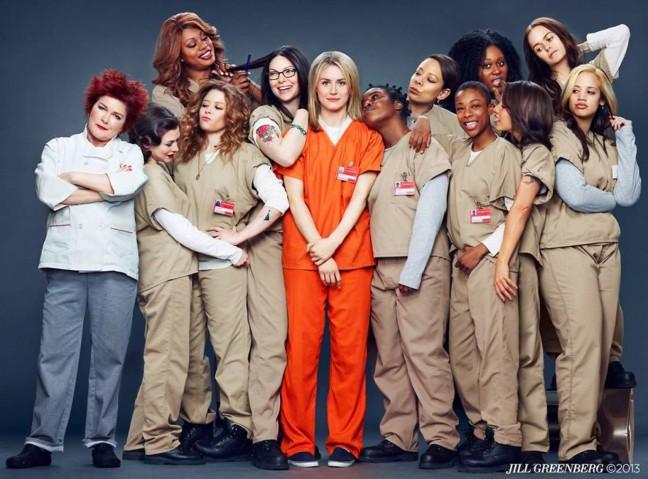Taken as a pair, the narration over the opening sequences of “Trainspotting” and the digital message that begins the second half of Radiohead’s seminal album OK Computer are eerily similar.
In the movie, the main character, Renton (Ewan McGregor, “Perfect Sense”), describes a well-adjusted life over the strains of Iggy Pop. “Choose life,” he commands. “Choose a job. Choose a career. Choose a family. Choose a fucking big television. Choose washing machines, cars, compact disc players and electrical tin can openers. Choose good health, low cholesterol and dental insurance. Choose fixed-interest mortgage repayments. Choose a starter home. Choose your friends. Choose leisurewear and matching luggage.”
It’s a lengthy list, one that Renton caps off by informing the audience that he chose none of those things. Why? “Who needs reasons when you have heroin”? Whatever the intention of the movie, the juxtaposition of the minutiae of suburban life with the punk rock montage of Renton running through the streets is enough to co-opt that speech as a pro-drug rant (though, true, the parallel ending scene indicates otherwise). His life, full of chases, excitement, drugs and rock and roll is the one that’s being lived to the fullest; yours, with your “leisurewear” and your “mind-numbing, spirit-crushing game shows,” is unfulfilled.
Likewise, the track “Fitter Happier” from OK Computer describes an average life. “Regular exercise at the gym three days a week / Getting on better with your associate employee contemporaries / At ease, eating well, a better patient driver / A safer car, baby smiling in back seat / Sleeping well, no bad dreams.”
The track is spoken in computerized tones over an eerie ambiant backing. It’s obvious, as the list is compiled, that Thom Yorke despises the life being described; the computer voice echoes the robotic existence being laid out in excruciating detail. The biggest indicator of his contempt is the care he takes to stay neutral, depicting a thoroughly average group of expectations and ambitions. Well, that, and the fact that Yorke caps the track with “A pig, in a cage, on antibiotics.”
The two works, which were released within 18 months of each other (“Trainspotting” came out in 1996, OK Computer in 1997), both advocate – obliquely in the case of “Trainspotting,” more directly in OK Computer‘s – for a less cautious, structured approach to life. Why revel in the tedium and monotony of a safe, uncomplicated life? Why spend your time working out, networking, or watching game shows on the couch when you know that you’ll just eventually be “rotting away at the end of it all, pissing your last in a miserable home, nothing more than an embarrassment to the selfish, fucked-up brats you have spawned to replace yourself”?
It’s not a new idea, the dullness of a comfortable existence, but that particular brand of self-loathing is unique to an age in which technology meets many of our needs. If on the Maslow hierarchy, we’re somewhere between “Love/belonging and self-esteem,” Radiohead is arguing we need to step it up to “Self-actualization.” It’s a complex point, to be sure, but imagine for a moment that it could be condensed to 140 characters. Something like “I really wish I got on better with my associate employee contemporaries.” Starting to look familiar? That’s right – the entire enterprise is essentially one big #firstworldproblems hashtag.
But is that a problem? The label is meant derisively, and seen most after a piddling complaint on Twitter: “My milk went bad because it was hidden behind all the fresh produce I bought last week,” or “I can’t sleep with this new comforter. I miss my old, beat up one.” And, true, complaints like that wouldn’t exist for a person that had to go out and farm his own vegetables or use a refrigerator box for warmth. But there’s an entire category of art that relies on stirring up problems in the middle-class ordinary. Just look at the genre of pop-punk, Sofia Coppola movies or every word Jonathan Franzen has ever written. To dismiss art solely because it’s rooted in a generally benign existence is to commit the cardinal sin of judging only on content, rather than considering form.
Not that it can’t be infuriating, especially when the characters of a story are more successful than even the first-world audience considering them. However, things like “Sex in the City” or the later seasons of “Entourage” aren’t bad because they’re about a bunch of rich people with rich person issues. They’re bad because they’re boring stories about rich people and their rich person issues.
The thing is, first world problems can actually be a shortcut to success with first world audiences, rather than a deterrent. But they don’t guarantee it. Because great art – a category to which “Trainspotting” and OK Computer both belong – evokes an emotional response, and the most direct route to that response is through examining the known.









